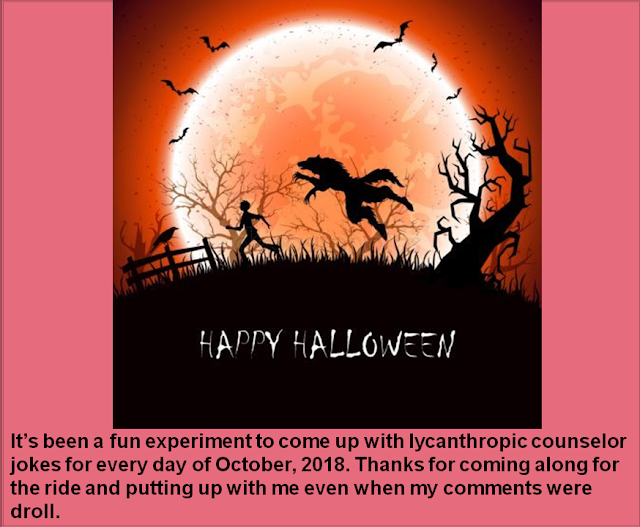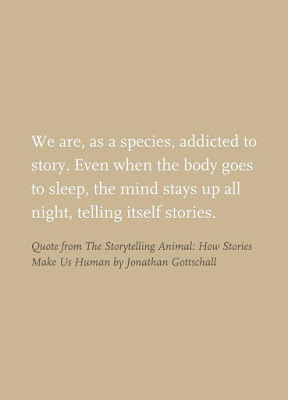Many years ago I tried my hand at writing an allegory. What follows is the first two chapters of an abandoned work. I will leave you, Gentle Reader, as judge, jury, and executioner.
Sister Unicorn:
A Fable For Adult Children
by Alan Loewen
ALL RIGHTS RESERVED
Chapter 1
The question of suicide: Keep it a question. It’s not really an answer - Peter McWilliams
The woods were as green as he remembered them. Spring had turned them into verdant glory. Somewhere along this one-lane macadam road, wandering into the wooded hills of Patrick Shannon’s childhood, lay a place of restoration through memory. A place where he might have a few moments of peace. A place where he might die with a few happy reminiscences.
The gun lay on the seat next to him, its leaden mass a cold reality and acknowledgment of betrayals and old wounds.
Patrick truly doubted if he could find the place again. After thirty years, the memory of landmarks grows dim. Fickle recollection plays tricks, exaggerating or diminishing the events on which one’s realities are based.
Nonetheless, his hands on the steering wheel seemed to follow a deeply buried subconscious map. In spite of three decades of forest growth and death, he remembered this specific turn. A boulder on the side of the road stirred up faint recollections. A steep hill brought back memories of a young boy peddling his bicycle with all his might and the wild joy of a mad ride coasting down the other side while the front wheel wobbled in fury.
Eventually, a few miles after the macadam gave way to dirt, he steered onto the narrow shoulder and stopped, his car still partially on the road. Could this be the place? The familiar narrow path was certainly gone, but there seemed to be a ghost of it left behind, tracing its way through the brush.
He slipped the gun into his coat pocket and eased his bulk from behind the steering wheel. The click of the car latch closing faintly echoed through the woods like the sound of a distant gunshot. He didn’t bother to lock the door.
He paused momentarily before venturing into the wood. It was a warm spring day, but the sun had not yet risen high enough into the sky to warm the air underneath the forest canopy. He fancied he could almost see his breath.
After several steps into the wood, memory took over and led the way. There a familiar bend, here a rock with a twisted giant’s face dug up from the wellsprings of childish fantasy. Within a hundred feet, the familiar burning pain began in his chest with a flood of panic and a sense of impending doom. Patrick concentrated on the gun in his coat pocket beating against his hip with each step and he pushed through the agony.
In his mind’s eye, he could see the doctor standing before him. It’s not your heart, the doctor was saying. You need to lose a hundred pounds. I can understand how you can be feeling stress with your recent problems. I have a colleague that’s a respected psychologist. You can talk through the pain of losing a job, a wife, and a child. Patrick pushed the memory away with a grunt of despair and stumbled into the small clearing.
As he entered the glade, he stood in amazement as a wave of deja vu swept over him. Time here appeared to have stopped still; the spring, the shallow pool, the old oak tree remained the same as his memory recalled them.
The spring soundlessly bubbled up from the ground between the gnarled roots of the old oak, the water collecting in a shallow pond no more than ten feet across. Untold years ago, somebody had taken large gray pieces of shale and flat rock to line the pool’s edge, forming a lip where a visitor could sit and place his feet into the chilly waters. Patrick never knew whose labor graced that glade, but in childhood, he had spent many hours sitting on the shale lip staring into the reflective water. Many times he had accepted the pool’s invitation and lay naked in the water, feeling the coarse bottom sand against his back, the water’s depth just enough to keep his limbs buoyant.
The walk from the car to the spring was not far, but the memory of those cooling waters created a thirst that made his tongue stick to the sides of his teeth. He didn’t worry about the possibility of the spring being polluted. It would be several days before the bacteria or viruses could make him ill and for him time had lost its power.
With some effort, Patrick lay on the ground, his face just inches above the pool’s surface where the water bubbled and boiled. He plunged his face into the pool and winced at the frigid shock of spring water. The water tasted delicious, its bouquet speaking of years under the earth where it steeped fine flavor from primordial rock.
With a groan, he eased himself back from the pool and against the oak, using the venerable old tree as a backrest, water dripping off his face and onto his shirt and loosened tie. Soon, the pain in his chest would ease and then he would stop this mad charade.
Within a few moments, the pain subsided; the water dried from his face. Memories came in a flood.
If there is a hell, Patrick thought, it is where the damned will always ask the question, “What if?” He knew he had asked his own share during his last few weeks; enough to fill a few eternities. What if he had studied history instead of business management? What if he had gone to a smaller college instead of an Ivy League institution? What if he had never married Julia, but had kept his engagement with Alicia? What if Peter, his son, had never died because of that stupid accident? And what if his wife and he hadn’t permitted their son’s death to drive them apart? Once again, his face was wet. Tears coursed down his face as hot channels of regret.
He pulled the gun out of his pocket and laid it on his lap, its heavy presence speaking sermons of despair. The “What If” game was a deadly drain of energy, but it served its purpose of reminding him of his resolve.
He leaned his head back against the oak. God, he prayed silently, if you are really there, I’m sorry. I’ve had enough. He lifted the heavy gun up to his mouth.
There was the sound of a twig snapping.
The noise was so loud, it sounded like the gunshot he fancied would be the last sound he would ever hear.
Startled, he lowered the gun and looked around in alarm.
A porcupine slowly waddled into view out of the underbrush, making comical grunts and groans as if bearing quills was the worst punishment in the cosmos. Patrick watched in annoyance as the creature, mumbling to itself, waddled to the pool and sought a place on the rocky lip to get a drink. Patrick’s date with death had been postponed by a silly porcupine.
Strangely, he suddenly recalled an old story of an aging movie starlet. Tired of life, she had dressed in finery, filled her bedroom with expensive roses and washed down a full bottle of sleeping pills with a bottle of vodka. Regally lying on the bed with her arms folded she waited for death but was overcome first by nausea. She crawled to the bathroom, and, while vomiting, the sleeping pills took effect. They found her drowned, her head submerged in her own bile-filled toilet. The unwelcome vision of people finding his body surrounded by mumbling porcupines was not how Patrick envisioned his own personal drama.
Angrily, he cocked the gun and leveled it at the offending intruder. The porcupine had finally found a place near the water’s edge and momentarily ceased its grumbling to drink.
Patrick’s finger tightened on the trigger.
“No!” he heard. Patrick dropped the gun in surprise. It fell to the forest floor, denting the moss with its dull weight.
He struggled to his feet, the back of his suit coat snagging against the rough bark of the old oak as he searched for his hidden witness in the glade. Out of the corner of his eye, he caught a glimpse of shining white. He turned his head and came eye to eye with glory.
Delicately, it came out of the underbrush, iridescent hooves making no sound or leaving any mark as it walked on the loam. It was not a horse, though it shared many equine features. Its limbs and body were much thinner were more graceful than the finest show mare. The white lion-like tail twitched around its back legs ending in a large tuft of hair as bright as the mane that spilled over its shoulders.
The coat was also blazing white, a contrast to the black eyes that appeared as deep, dark wells that spoke of ancient wisdom and intelligence. On the forehead, a spiral horn the length of Patrick’s forearm shone as if covered with mother-of-pearl.
It stared at Patrick for an eternal second, eyes weighing him. Never had he felt so naked as before that gaze. His thoughts paraded before its vision, no secret able to hide behind a lie or redeem itself with false justification.
Patrick stood for what seemed days. Then he turned and fled and ran directly into the trunk of a large elm.
Chapter 2
Will the unicorn be willing to serve thee, or abide by thy crib? Canst thou bind the unicorn with his band in the furrow? or will he harrow the valleys after thee? (Job 39:9-10)
Patrick’s first awareness was a pounding headache. He opened his eyes with a groan and found himself lying on his back on the forest floor with a unicorn’s face only inches from his.
He snapped his eyes shut and trembled, probably, he realized, doing a terrible job of feigning unconsciousness. He had fought and won many boardroom battles, proudly leaving his victims emotionally battered and defeated, but office politics had never taught him how to deal with imminent death from a beast of legend.
Patrick could feel the unicorn’s warm moist breath against his face. The aroma of its exhalations spoke of fields of newly mown hay and yet more of cold winter mornings when snow crunched against booted feet. The scent slowly drained away his fear as childhood memories flooded his mind of orchards of apple trees overburdened with crisp fruit, blazing sunsets and farm ponds alive with frogs and fish. The fragrance demanded the remembrance of childhood innocence and joy long-lost. The mental images brought a wave of overwhelming grief.
“I know you.”
Patrick did more than hear the words with his ears. They gently and subtly poured into his mind. Though husky and with a trace of a lisp, the voice was clearly feminine.
“Yes,” the voice repeated in his ears. “I do know you. You have not been kind to yourself”
He opened his eyes and stared with awe at the unicorn’s face, gazing directly into those wonderful eyes. “I’m losing my mind,” Patrick said audibly, his voice sounding preternaturally loud in the quiet glade.
The unicorn looked down at him, her head cocked like a dog when encountering a new phenomenon for the first time.
“You’re … ,” Patrick stuttered, “You’re a unicorn!”
The unicorn snorted, for all the world, Patrick thought, sounding like half a laugh, merriment briefly shining from her eyes.
“And you,” the unicorn said, “are a human.” Once again, her eyes became heavy with sadness. She nodded her head toward the gun lying on the ground, its ugly presence a transgression in the glade. “Why,” she asked, “do you search for what you already have?”
“I … I don’t understand,” Patrick said.
“Get up,” the unicorn said, her tone more request than a command. The unicorn stepped back to allow Patrick to wobble to his feet. “I have a long journey and I wish your company.”
“Where are you going?” Patrick asked, grasping the tree trunk for support as he regained his balance. Wander the woods with a unicorn? Had he gone mad? “I don’t think I can go with you. I … I …”
The unicorn simply stared at him while he stammered. “Where else do you have to go?” she asked. With a flick of her tail, she turned and walked off into the woods.
Patrick stared for a few moments and, for reasons he couldn’t fully fathom, followed her.
Patrick walked as if asleep. Emotionally numb, he followed the gleaming unicorn deeper into the forest, his eyes locked onto the blazing white coat that carefully picked its way among the trees.
The forest changed. Giant oaks, covered with moss, stood as ancient sentinels. The undergrowth had been replaced by a deep blanket of decaying leaves and an occasional patch of fern that burst from the soil in green glory. Aside from his own breathing, the forest lay in silence.
In his childhood memories of the glade, there was no remembrance of a forest like this one. Surely if he had walked among these arboreal giants, he would have remembered them plainly. The towering trees, their crowns as much as one hundred feet above him, allowed little light through to the forest floor, giving the woods a sort of ethereal, dream-like quality.
“Am I dreaming?” he asked himself aloud.
“No,” the unicorn replied. She had not turned to address him but continued to walk gently through the forest.
Patrick started. Her simple one-word intrusion was, at the least, disconcerting. His anger at what seemed to him a simplistic answer partly awoke the old Patrick Shannon who had faced powerful men and threatening situations in the corporate boardroom.
“Before I take another step,” he said, stopping dead in his tracks, “I want to know if I’m dreaming.”
The unicorn stopped, paused as if in thought, and walked back to him. She nipped him on the thigh. Hard.
Patrick’s yelp, more from surprise than pain, shattered the forest silence.
“You bit me!” he said, rubbing his bruised thigh through his pants.
“And now you know you are not dreaming,” she replied.
“Then,” he asked haltingly, “am I dead?”
She eyed his thigh and he backpedaled away from her before she could bite him again.
“Never mind,” he said quickly. “I’ll accept the fact that I’m neither asleep nor dead.”
“Pain has a way of doing that,” she said. “I’ve noticed how humans deny reality until they step barefoot on a nettle. Sadly, it usually takes worse than that before they will accept a truth.”
“But you’re supposed to be a myth,” Patrick said. “ And I read unicorns only showed themselves to virgins. And what are you doing here in the United States? I thought you only hung around castles.
“And I was told you were just a rhinoceros! And you’re not supposed to talk!” Patrick glared at her, his hands on his hips.
The unicorn whickered out loud, humor evident in the gentle horse-like sound. “My, my,” the unicorn said. “It seems I’m breaking many rules today.
“Nonetheless, here I am, so it seems your tales must be incorrect. Now come. There is water ahead and I am thirsty.”
She turned and walked away from where Patrick stood defiantly. As she disappeared among the trees, the silence of the woods became overwhelming. For Patrick, the frightening prospect of being alone and not sure of the way back to the glade and the car became unbearable. He felt the familiar pain begin to well up in his chest.
“Wait!” he cried. He ran the direction he saw the unicorn disappear, mindful only of the trunks of the trees and the roots creating a maze of snares for his feet.
He almost ran directly into her. Coming to an unsteady halt he found himself standing by a small stream of crystal clear water talking to itself between the ferns as it poured over time-worn rocks.
Gently, the unicorn dropped her head and drank long from the cold mountain water. “Are you thirsty?” she asked, finally raising her head.
Patrick dropped to his knees, more from emotional than physical exhaustion. He cupped water in his hand and drank until his thirst finally went away.
“Are you hungry?” she asked.
“A little,” Patrick said. “But what’s to eat?”
The unicorn nosed a tiny plant with deep green leaves and one or two scarlet berries. The ground was covered with them.
“These berries have survived the winter,” the unicorn said. “They may taste dry, but they are refreshing.”
“They’re not poisonous?” Patrick asked.
The unicorn stared at him for a few moments and, bending her head, bit off the top of the plant. She looked at him as she chewed.
Patrick sighed and picked a few of the berries within easy reach. He grunted in surprise at the pleasant taste and for a few minutes contented himself with picking the small bright, red berries.
“This is good,” he said after sampling a few. “What is it?”
“In your tongue, it is called wintergreen,” she said.
Patrick munched thoughtfully for a few minutes while the unicorn grazed. Her long tail, looking more like a lion’s than a horse’s, flicked at her sides.
“Tell me,” he said. “Back in the glade, you said you remembered me. What did you mean by that?”
“I saw you there many times when you were a child,” she replied. “I watched you when you played in the spring.”
“I never saw you.”
“I did not want to be seen.”
“Then why show yourself to me now?”
The unicorn’s eyes grew sad. “When you were young, I enjoyed watching you take pleasure in the glade and the solitude. There is not much carefree joy in the world, and what little there is, is too quickly tainted. It was that memory of innocence and delight that caused me to reveal myself today.
“When you where a child there were times when you would fall asleep and I would momentarily fully enter the glade without hiding, acting for a few precious moments there was no estrangement between human and unicorn.”
She sighed, a strange human sound filled with sadness.
“I do not willingly intrude in the lives of men. Even in the season when the leaves change color and fall and men bring their guns to hunt the animals in the woodland, I do not intervene.
“But I now have a long journey and a perilous task with an uncertain outcome. It is in remembering you as what you were, I have asked you to come. Your presence helps me with my burden.”
For Patrick, the words stung. His guilt over lost innocence was what drove him to consider committing suicide where his childhood memories were the happiest.
“Do you have a name,” Patrick asked, changing the subject.
“In your tongue,” the unicorn replied, “it probably would be Dawn’s Herald.”
“That’s appropriate,” Patrick said, smiling in spite of himself. “My name is Patrick.”
“That name is appropriate also.”
“Where are you going?” Patrick asked, picking himself up and brushing the forest mold from the seat of his pants.
“Come and see,” the unicorn replied.
Together they crossed the small stream and continued through the dim forest.







































